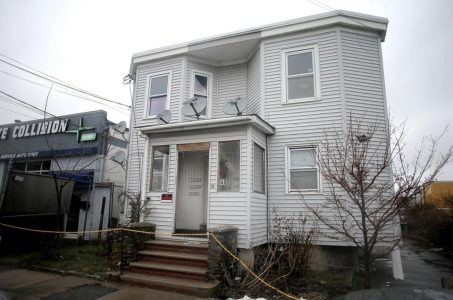Seven Cases of Legionnaires’ Disease Now Linked to Rio
Posted on: November 15, 2017, 04:00h.
Last updated on: November 16, 2017, 03:18h.
The Southern Nevada Health District announced on Tuesday that they have confirmed seven cases of Legionnaires’ disease among guests at the Rio All-Suite Hotel and Casino in Las Vegas, all of which occurred during an outbreak that was reported five months ago.

Officials also suspect 29 more cases may have occurred as a part of the outbreak.
It may seem strange that the confirmed numbers from the June investigation are only now coming to light. But health experts say that this is a normal timeline for such an inquiry.
“In a situation like this, part of the process of these investigations on an environmental aspect is continued testing and monitoring,” senior environmental health specialist Robert Cole told the Las Vegas Review-Journal.
Investigation Began During WSOP
The investigation began back in June, during the time in which the Rio was hosting the World Series of Poker. At the time, it was known that two unrelated guests who had stayed at the casino in March and April later contracted Legionnaires’. Testing was then done on the water systems in the property, which confirmed the presence of Legionella bacteria in one tower.
At that time, all rooms in that tower were evacuated so that the rooms and plumbing system could be fully disinfected. The investigation then began, though at the time, there was no evidence that any other guests had contracted the disease.
However, the health district’s investigation turned up notifications from other guests who left Las Vegas without reporting the disease, but were later diagnosed when they arrived at home. That’s why the investigation took so long to complete: new reports tend to slowly come in over time, which helps paint a more complete picture of the outbreak.
Experts Say No Risk to Guests
As an extra precaution, staff at the Rio went through a third round of disinfection procedures on November 3. Testing then found that the hotel’s water systems showed low or no presence of the Legionella bacteria. Cole said that guests are not currently in danger of contracting the disease.
Though Legionnaires’ isn’t unheard of at casino resorts, the disease is still quite rare, and can only thrive in optimal conditions. That includes impurities in water as well as warm water temperatures of 68-113F, according to the UK National Health Service.
Typically, about 10 percent of those infected will die after infection, though that number is much higher when the disease infects a medical facility than in other circumstances.
Most healthy people who come in contact with Legionnaires’ do not become sick, and those who do can normally be treated with antibiotics.
Boxout: What is Legionnaires’ disease?
Legionnaires’ disease is caused by a bacteria that normally lives in freshwater environments. However, it can become a health threat when it spreads into manmade water systems, such as hot tubs, cooling towers, and plumbing systems.
The disease is named after its first known breakout, which took place in 1976 during an American Legion convention in Philadelphia.
Related News Articles
Wynn Boston Harbor Paying Top Dollar to Demolish Nearby Homes
Penn National in No Rush to Build Pennsylvania Satellite Casino
Most Popular
Mirage Las Vegas Demolition to Start Next Week, Atrium a Goner
Where All the Mirage Relics Will Go
Most Commented
-
Bally’s Facing Five Months of Daily Demolition for Chicago Casino
— June 18, 2024 — 12 Comments















Last Comment ( 1 )
Hey My brother stayed at the RIO the last week of October and has not been able to return to work as the dr's try to make him better, I will pass this info onto him.